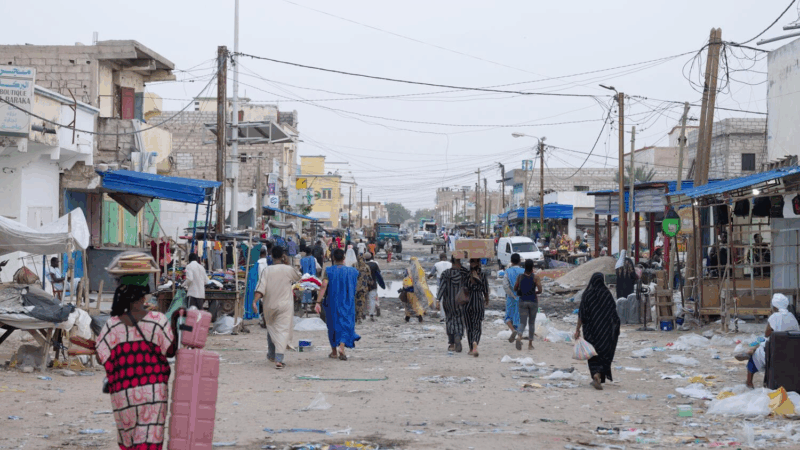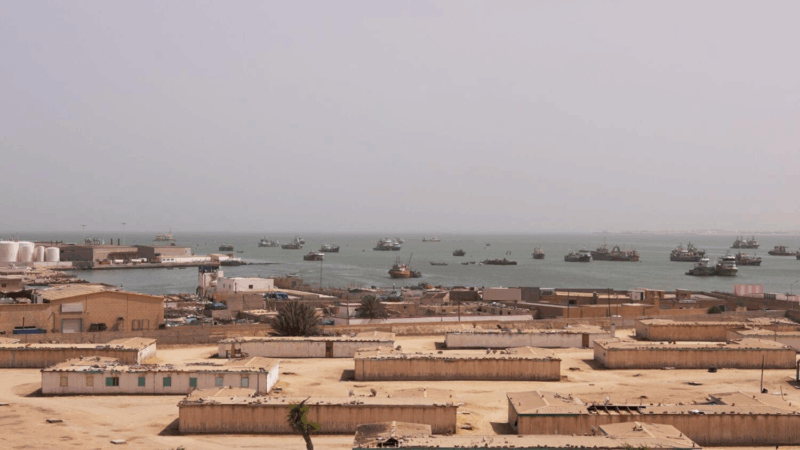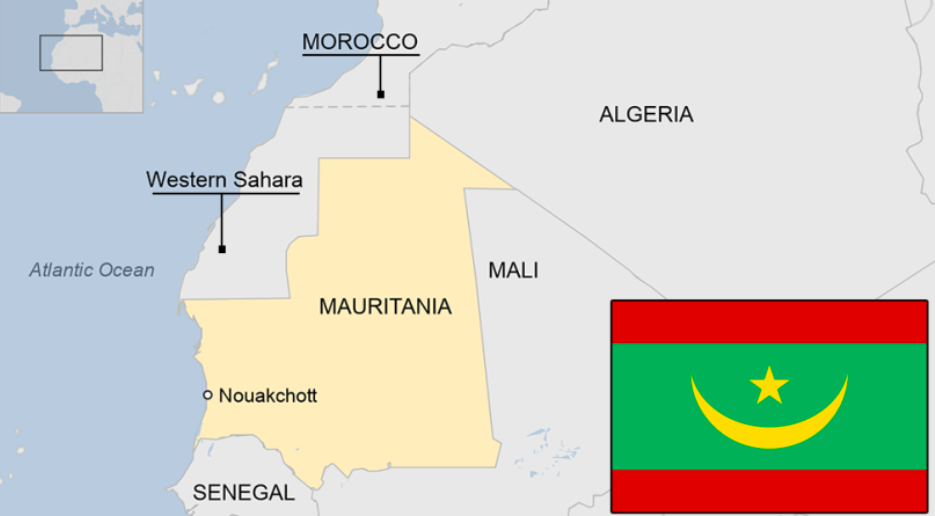Over the past few months, the Sahelian country has increased its persecution of migrants in transit through the country, with multiple reports of human rights violations.
Over the past few months, the Sahelian country has increased its persecution of migrants in transit through the country, with multiple reports of human rights violations.
By Anna Enrech Calbet*
In Mauritania, September and October are the hottest months of the year. This heat translates into nearly empty streets during the day, which fill up as the sun begins to set. Even so, tensions are running high: in recent months, Mauritanian police have significantly increased their raids on the streets of Nouakchott, the capital, to intercept migrants in transit through the Sahelian country with a final destination: Europe.
This increase in raids is not without reason. In the Cinquième and Sixième (fifth and sixth) districts of the capital, known for their large migrant populations, checkpoints are everywhere: police patrol and identify anyone suspected of lacking proper documentation. “This dynamic didn’t exist before: Mauritania used to be a welcoming country for Africans, even those who arrived without papers. But that has changed since the agreement with the European Union, which has sparked a heated debate about the detention of African migrants on the streets of Nouakchott, the searches, the requirement of permits, and the deportations,” explains Raby Idoumou, a renowned Mauritanian journalist. “Furthermore, the authorities do not facilitate residency procedures, and only open them during certain periods. Outside those periods, it is impossible to regularize their status, even if they have the financial and legal means to do so.”
In Mauritania, there are two key locations for the migration route. One is Nouakchott, specifically the aforementioned neighborhoods. “It’s rare for someone traveling irregularly to Europe not to pass through Nouakchott first, and specifically through Cinquième and Sixième,” the journalist points out. The other is Nouadhibou, the country’s second most populous city and bordering Western Sahara. With a fishing tradition, its geographical location has made the city one of the main departure points for the Canary Islands.

European Union, Spain and Mauritania
“The agreements between the European Union, Spain, and Mauritania seek to almost completely halt the flow of migration to Europe; and this situation clashes with the crises affecting neighboring countries, such as Mali, Burkina Faso, and Niger, which are experiencing serious political crises, coups, and high levels of violence perpetrated by armed groups, in addition to strong social tension and poverty,” Idoumou continues.
These agreements, which translate into the externalization of border control, establish operational cooperation in security and border matters. For example, in Mauritania, officers from the Spanish Civil Guard and National Police are deployed to collaborate with local security forces in maritime, aerial, and land surveillance. Juan Couce, a Civil Guard officer in Las Palmas de Gran Canaria and spokesperson for the Unified Association of Civil Guards in the Canary Islands, explains that “the Ministry of the Interior has signed a series of agreements with African countries to try to curb the exodus of their residents to Spain. There are Civil Guard and National Police detachments in both Mauritania and Senegal. There are also joint patrols with Morocco, where the Sahara is patrolled. These are political issues that we cannot comment on. When the Spanish Ministry of the Interior reaches agreements with African countries, the number of migrant boats and canoes typically decreases, reducing the number of arrivals on the Canary Islands’ shores.”
One of the projects the European Union is working on with Spanish agencies and entities is with FIAP, explains Joaquín Tasso, EU ambassador to Mauritania, involving the construction of new temporary reception centers for migrants. “We are immediately accused of building detention centers. It’s exactly the opposite. These are temporary reception centers to ensure that these migrants, before being immediately expelled, go through a process of being heard, having their situation assessed, and being identified as vulnerable. They are not detention centers. It’s true they cannot leave for a period of time; this is what an administrative detention of 48–72 hours entails, to determine the nature of these individuals,” he argues. Even so, he claims to have evidence of abuses by the Mauritanian police during some migrant identification processes. “The right to expel an illegal resident is a sovereign right of Mauritania that cannot be challenged.”
The latest Human Rights report Watch reports serious human rights violations committed by Mauritania against irregular migrants. Among other things, the report points to cases of rape, torture, and unjustified expulsions, including deportations to countries other than the migrants’ countries of origin. It also denounces the abandonment of some people in areas exposed to armed attacks, such as Mali, as well as overcrowding in migrant detention centers.

Nouadhibou: Key to departures to the Canary Islands
A single road and nearly 500 kilometers of desert separate the two most populated cities in Mauritania. That Nouadhibou is a fishing town is obvious: the cars overflowing with fish and the smell they give off leave no room for doubt. It was precisely the work surrounding fishing that made Amsatou Vepouyoum did not continue his route to Europe and stayed in Nouadhibou.
Amsatou is from Cameroon and arrived in the Mauritanian city in 2000. Her intention was to continue her journey to Europe, like so many others. “I am a migrant; I left home because of life’s hardships and to escape an arranged marriage.” But she started working in fishing-related jobs and eventually stayed. “Nouadhibou is a very strategic city for migrants because it’s in northeastern Mauritania, closer to the Canary Islands, and also to the border with Morocco. It’s a strategic point of entry into Europe.”
Currently, she is the president of the Cameroonian community residing in Nouadhibou, and also of the Support and Assistance Organization for Migrants and Refugees in the same city. One of the main projects they promote is the operation of a school for the children of people in transit through Nouadhibou. “It’s a school for migrants. We created it to provide literacy to those who don’t have access to education.” Its objective is to facilitate schooling for children who, because they are undocumented in the country due to their families’ migration process, cannot attend Mauritanian schools. From one of the school’s classrooms, Vepouyoum explains that around 200 children from almost all the African countries near Mauritania attend the school: Mali, Guinea, Burkina Faso, and Senegal, among others. “We are eagerly awaiting the start of the school year, because we don’t know how many students we will have due to the raids and expulsions of migrants.”
The added violence against women
More and more women are migrating. Amsatou states this; and although she affirms that each person who migrates has different reasons and a different personal history, she also asserts that women are even more vulnerable during their migration journey. “They are more likely to be sexually exploited and suffer more violence. And furthermore, when they arrive as a couple, due to a lack of resources or fear that they will both die at sea, they prefer that the man continue on to Europe while the woman stays behind,” she explains.
Adama—a pseudonym—was born in the Democratic Republic of Congo. She fled Goma, in the province of North Kivu, because of the decades-long conflict in the east of the country. She is barely 25 years old and arrived in Nouakchott at the beginning of summer, along with her daughter. “They murdered my mother, and from then on everything changed,” she begins. “In 2019, a friend of my mother helped me go to Morocco. I thought the suffering would end, but it didn’t: I was forced into prostitution. In a single day, I could see 10 clients; there was no other option but to give money to those who forced us into prostitution. I tried to escape, and three men raped me in the desert. I wanted to try to cross into Europe either through Morocco or Mauritania, and I followed that route. Before reaching Mauritania, I was also attacked in Mali. Life isn’t easy. Sometimes I think about giving up; I don’t know if I’ll be able to recover. Although I know I have no other choice.”
Currently, Adama and her daughter live in Nouakchott, staying with a family in the city. They have no way to regularize their immigration status and no way to continue their journey safely.
“Europe doesn’t want irregular migration, but it also doesn’t promote regular migration mechanisms: it doesn’t facilitate obtaining visas, nor does it encourage genuine circular migration. Closing all legal migration routes only increases and strengthens irregular migration,” says Raby Idoumou. “It must be accepted that migration is a permanent and ever-changing issue, and that since the dawn of humanity, people have migrated from one place to another. This will not end today or tomorrow. Therefore, Mauritania must not accept becoming a border guard in the service of Europe,” he concludes.
* Anna Enrech Calbet, Journalist. Working on international issues, armed conflicts, and human rights. She alternates between freelance journalism and communications for third-sector organizations.
Article originally published in El Salto, translation by UWI.

















Leave a Reply